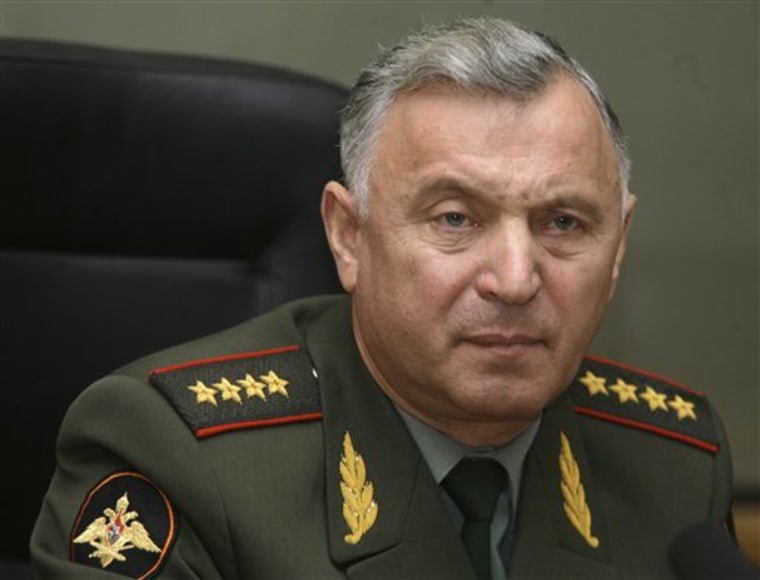Russia's top military officer called for new arms control talks with the United States on Wednesday, as the Kremlin seeks to engage President-elect Barack Obama's administration.
With two major conventional and strategic treaties in limbo for years, Gen. Nikolai Makarov presented what appeared to be Moscow's most detailed wish list to date for talks with Washington.
He urged the U.S. to negotiate a new treaty to replace the 1991 Strategic Arms Reduction Treaty before it expires in a year.
The START I pact was signed by Soviet President Mikhail Gorbachev and President George H.W. Bush and called on each country to cut its nuclear warhead stocks by at least one-quarter to about 6,000.
A second deal — the so-called Treaty of Moscow — was signed in 2002 and called for cutting each country's nuclear arsenal further to 1,700-2,200 warheads by 2012. The document was closely based on START I rules and its verification procedures.
Makarov said a new treaty should specify limits for all kinds of nuclear weapons and should outline control and verification procedures. It should also contain guarantees that stockpiled nuclear warheads cannot be quickly returned to combat duty, he said.
Both Russia and the United States want a successor deal, but progress has been hampered by strained relations over U.S. missile defense plans and Russia's war in Georgia.
Dealing with a new administration
Rose Gottemoeller, director of the Carnegie Moscow Center think-tank, said that Makarov had repeated some of Moscow's long-held demands, apparently reflecting a desire to engage with the new U.S. administration.
"Prospects are quite good that a new agreement can be reached," she said. "The new administration in Washington realizes that we have a clock ticking, that START I will go out of force in December 2009, and so basically the United States and Russia have a deadline, a very firm deadline."
Moscow suspended its observance of another Cold War-era arms pact last year — the 1990 Conventional Forces in Europe Treaty limiting the deployment of aircraft, tanks and other heavy non-nuclear weapons on the continent.
Russia said it took the step because NATO countries had not ratified a 1999 revised version. The United States and other NATO members said they refused because Moscow should first withdraw forces from Georgia and the Moldovan separatist region of Trans-Dniester.
Makarov said Moscow might return to the CFE treaty if NATO accepted lower limits on weapons and abandon the so-called "flank" restrictions, limiting troops and weapons deployment in Russia's southern and northwestern regions.
He said that all NATO members, including the ex-Soviet Baltic nations, must accept a modified CFE treaty.
Makarov also said that Russia will keep its arsenal of tactical nuclear weapons, which he said were necessary to counter a massive NATO advantage in conventional weapons.
NATO spokesman James Appathurai said that the alliance had not received Moscow's official proposals, "but it will certainly be looked at closely when it arrives."
